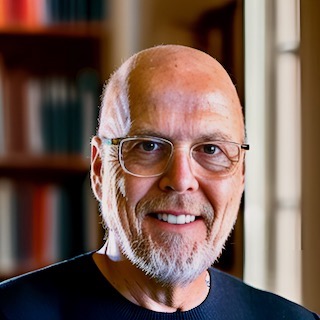In Psalm 85:4-7, the Psalmist cries out to God, “Turn us, O God of our salvation, and cause thine anger toward us to cease… Wilt thou not revive us again: that thy people may rejoice in thee? Shew us thy mercy, O LORD, and grant us thy salvation.” This prayer resonates with the longing for revival and spiritual awakening that has characterized the history of Christianity. Throughout the ages, significant moments of revival and awakening have shaped the course of nations and the lives of individuals. In this post, we will explore the concept of revival, particularly focusing on the four Great Awakenings that have taken place in the United States. We will also delve into the insights of Nobel-winning economist Robert Fogel, who saw a connection between these awakenings and society’s social, economic, and moral advancements. Finally, we will discuss the relevance of these historical awakenings in our current cultural context and the urgent need for a new revival in our nation.
The First Great Awakening: The Birth of Evangelicalism
The First Great Awakening occurred between 1730 and 1755, sweeping Europe and British America. Its lasting impact was the emergence of the Evangelical movement, which became the dominant force driving Christian culture. This awakening also played a significant role in the outbreak of the Revolutionary War, leading to the establishment of the United States as an independent nation. The First Great Awakening focused on reforming the churches of Europe and America, emphasizing the need for salvation and personal conversion.
The Second Great Awakening: Revival of the Unchurched
The Second Great Awakening lasted from 1790 to 1840 and gained momentum among the unchurched population. It emphasized experiential salvation, characterized by enthusiasm, emotion, and a deep connection to the supernatural aspects of relationship with God. The lasting contribution of the Second Great Awakening was the emergence of the abolition and anti-slavery movement, driven by a spiritual imperative that eventually led to the end of slavery in the aftermath of the Civil War. This awakening brought about significant moral and societal reform.
The Third Great Awakening: Charismatic Renewal and Social Justice
The Third Great Awakening gained momentum with the Pentecostal outpouring under William Seymour and others. It was nurtured through the healing revivals of the 1950s and matured in the 1960s and 70s with the Charismatic renewal and the Jesus movement. This awakening is unique because statisticians claim it brought more people to Christ than the first two. The lasting contribution of the Third Great Awakening is seen in the conviction for social justice and equity, which sparked movements advocating for these causes. Today, the echoes of this awakening can be seen in the demands for social justice and equity that are prevalent in our society.
Robert Fogel’s Paradigm: The Impact of Awakening on Society
Robert Fogel, a Nobel-winning economist, proposed a paradigm connecting American history’s awakenings with social, economic, and moral advancements. Fogel’s framework suggests that technological advancements often create moral crises that can only be resolved through evangelical awakenings. He argues that the spiritual needs of individuals and society must be addressed through a deep renewal and revival birthed in the Church. Fogel’s insights reveal that positive advancements in society have historically originated from the spiritual realm rather than from political or economic forces.
The Cycle of Awakening and Outpouring
Fogel’s model identifies a cycle of awakening and outpouring that each of the past awakenings has experienced. Revival fires start in the church and spread to the public square, becoming impossible for the secular world to ignore. However, as political and business leaders attempt to join the movement, the spiritual initiatives of the awakening often turn into competing political agendas. The promises made by politicians are often unfulfilled, leading to disappointment and, in previous cases, even war. The current Culture War in America reflects the political world’s inability or unwillingness to bring about the necessary changes.
It’s a New Day: The Call for a Fourth Great Awakening
In light of the failures and shortcomings of relying on politics or military might to bring about lasting change, the cry today is for a Fourth Great Awakening birthed by the Spirit of God. As in the days of Elijah, when rain symbolized economic prosperity and blessing in ancient Israel, we need a spiritual awakening that will address the deep-rooted issues plaguing our nation. Our true source of prosperity and blessing lies in turning to God rather than relying on political leaders or military power.
Conclusion: The Urgent Call for Spiritual Renewal
Looking at the historical awakenings and the insights of Robert Fogel, we are reminded that true transformation and progress for nations and individuals have come through spiritual revival. We cannot place our hope in politics, military might, or the agendas of secular society. The urgent need of our time is a new revival, a Fourth Great Awakening, that will bring about true social, economic, and moral reform. God is raising up a mighty Ecclesia, a body of believers who will stand boldly in their faith, speak truth to power, and usher in a new era of spiritual renewal. Let us not despise the day of small beginnings but rejoice as we see the hand of God at work in our nation and throughout the world. It is not by might nor by power but by the Spirit of God that true revival and transformation will come. Let us embrace this call and rise up as agents of change in our generation.
Discover more from Fathers Heart Ministry
Subscribe to get the latest posts sent to your email.


Rick says:
°
Amen!